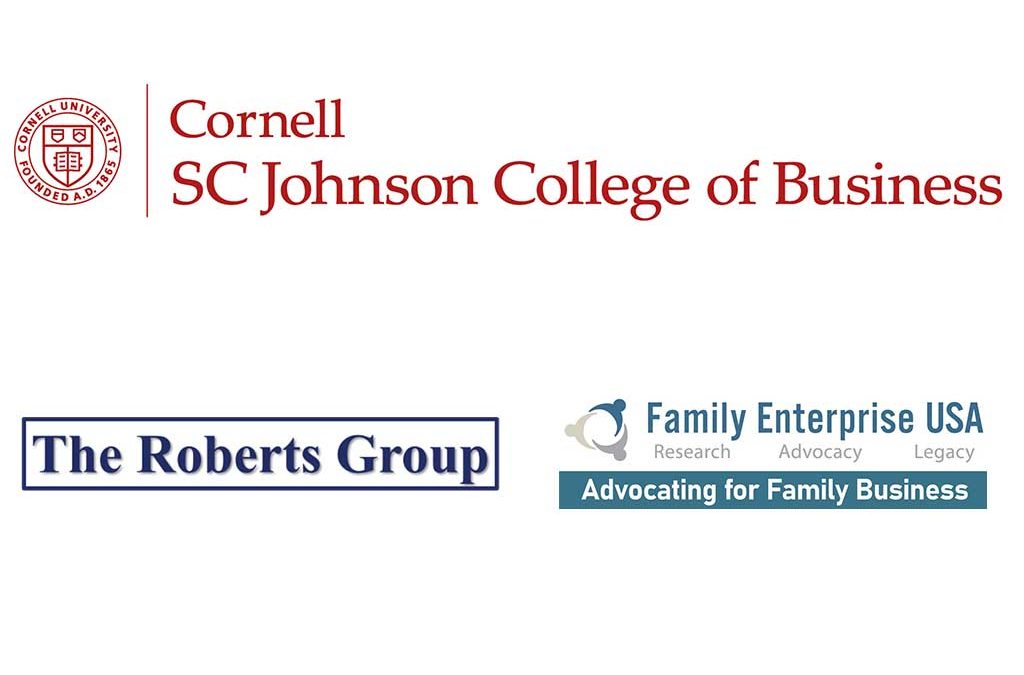Tell Us What Matters Most to Your Family-Owned Business
The 2025 Rising Gen Survey probed current college students enrolled in family business or entrepreneurship courses about what was most important to them as it related to their family business. Not surprisingly, communication is king.
Conducted in partnership with the Smith Family Business Initiative at Cornell University, Family Enterprise USA, and The Roberts Group, 164 current students shared their perspectives as they relate to their family’s business. This survey revisited a similar tool that was administered in the 2024 academic year.
For the second straight year, legacy was the word most associated with family business. Legacy is a layered term that could have both positive and negative connotations. Family and succession were also associated words, as well as complicated, private, small, and loyalty.
For those students identified in the survey whose family owns or operates a family business, nearly 75% of those businesses were founded after 1951, with nearly 50% representing the second generation of their family, and 31% representing the critical 3rd generation. Only 1 in 5 students had an ownership stake in the business at this stage, while 33% were unsure if they had an ownership in the business at all.
Agriculture (12%), construction and real estate (24%), and manufacturing (15%) remain the primary industries for family business, followed by retail (10%), healthcare (5%), and hospitality (5%). Nearly half (46%) of these family businesses do most of their business locally, yet 33% do business on a national or international scale.
Consistent with the 2024 results, the biggest concerns as they related to their family business remained revenue generation, succession planning and family communication. Students also cited sustainability, ownership structures, and being qualified as areas of primary concern.
Students enrolled in these family business courses, mostly because their family owned a business, but also for their own personal interest in starting a business or being curious about family businesses generally.
When asked if they “had the courage to ask their parents / grandparents any questions about the family business” their responses were particularly revealing about where families might focus future family meetings. Certain responses were tied to operations, such as, how and why did our business start, and why can’t we shift toward more professional operations. Yet, certain responses exposed topics that families often have difficulty engaging with, such as wealth, expectations, and family relationships. “What is our net worth?” “Is it worth continuing this business?” and “Do you want my other siblings in the business?” would all create fertile ground for many lively and necessary family conversations.
Where else might these businesses begin to address some of these knowledge gaps? Governance would be a solid place to start. With nearly 50% of these students indicating that their family does not have a family council, and 45% with no family constitution, employment policy, or formal board, communication and confusion about ownership or responsibility could be addressed with those in place. For educators, incorporating these (or incorporating more of these) topics into future classes and providing students the tools to implement them is highly recommended.
“A few things have become clear as we conclude the second year of this study,” shares Daniel Van Der Vliet, the John and Dyan Smith Executive Director of the Smith Family Business Initiative at Cornell University, and co-author of the study. “There is still a wide gap between what this rising generation of students knows about their family business, and what is shared with them by the senior generation. And communication remains key for all involved in the family enterprise. It is important to not only share what the history of the business and family is, but also to craft what that future might look like with those it will impact most.”
We hope you’ve enjoyed this article. While you’re here, we have a small favor to ask…
As we prepare for what promises to be a pivotal year for America, we’re asking you to consider becoming a supporter.
The need for fact-based reporting of issues important to family offices and successful families and protecting a lifetime of savings has never been greater. Now more than ever, family offices and successful families are under fire. That’s why Family Enterprise USA Action is passionately working to increase the awareness of issues important to family offices and successful families, while continuing to strengthen our presence on Capitol Hill.
Family Enterprise USA Action engages with legislators on Capitol Hill on behalf of family offices, successful families, and family-owned businesses. It is focused exclusively on the critical tax and economic policies that impact them. Since 1995, FEUSA Action has been the leading advocacy group working daily in Washington, D.C., to reduce and eliminate estate tax, gift tax, and generation skipping transfer tax while blocking increased income and capital gains taxes, the creation of a wealth tax, and other hostile policies that punish hardworking taxpayers and success in the U.S. It is a bipartisan 501.c4 organization.
#incometax #CapitalGainsTax #R&DExpensing #DontPunishSuccess #GrantorTrusts #likeKindExchanges #AcceleratedDepreciation #EstateTax #Deathtax #wealthtax #taxLegislation #incometaxrates #repealestatetax #FamilyOffice #SuccessfulFamilies @PolicyAndTaxationGroup @DitchTheEstateTax #PolicyAndTaxationGroup #DitchTheEstateTax #FamilyEnterpriseUSAAction

